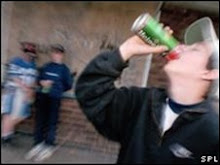It is imperative that monitor our program to ensure that the participants are invested in our efforts. Challenging dominant discourses is a difficult task in that as persons, we are very much embedded in our own value systems. If we are unable to encourage our participants to consider new ways of thinking about constructions of youth, then our programs will not be effective. Therefore, we will ask participants to complete a feedback questionnaire after every public presentation to measure their degree of engagement and commitment to the information and idea we will provide. This will allow us to continuously modify our program to ensure that our objectives are being met.
We will also ask participants to report their demographics including age, gender, and role in community (ie. parent, teacher, community supporter). This will be included as part of the information provided to us on the feedback surveys after our public presentations. We will also provide our website address within the printed media we will produce and at the end of the student school media presentations that will air on local television. We will ask that individuals visit our website and to fill out a small survey to report their demographics and perceptions of these programs as well their perceptions of our website. This will tell us who is accessing our programs and the degree to which they are engaged in the information so that we can make any necessary modifications. If we are finding that we are not accessing a diverse sample of individuals, we will need to modify our means to ensure we are reaching various groups within the community.
As the final aspect of our process evaluation, we will survey the youth who are participating in the school media project during its implementation. We will investigate the degree to which they feel their participation is voluntary and that they are able to make their own choices about the project they create. The purpose of this project is to foster self-determination and empower the voice of youth which means that voluntary participation is necessary for all participants. In addition, we must ensure that youth participants are empowered in their sense of agency and decision-making skills. We will engage the participants in weekly group discussion groups in which the youth can report these perceptions to a representative from our team that will then be used to continuously modify our approach.
We would also like to note that during our process evaluation, the opinions of youth will continue to hold the most significance. Not only will our program’s components be modified according to the information and perceptions youth provide, so too will our goals and objectives. If the youth involved in our program appear to support a goal other than lowering the legal drinking age to 18, we will use their voices to create a goal and corresponding objectives that reflect the needs of youth as a whole. Our goals and objectives will maintain this reflexivity to the voices of throughout the process of these programs.
Friday, November 21, 2008
Subscribe to:
Post Comments (Atom)


No comments:
Post a Comment